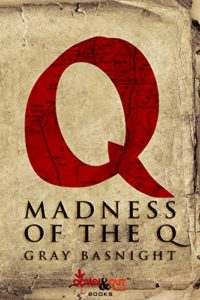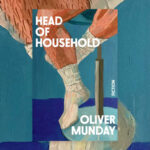As writers and readers, we’ve all cruised those lists of great must-read novels. You know the ones. They frequently come in rundowns of a hundred. Here’s a short list of the very many out there:
- Time’s List of the 100 Best Novels
- The Atlantic’s Greatest Books of All Time as Voted by 125 Famous Authors
- 100 Books to Read Before You Die
- Modern Library 100 Best Novels
They don’t come with a warning, but perhaps they should because a pride/guilt complex is built into these inventories of great fiction. If you’re like me, you scan them to see how many of the noted masterpieces you’ve read and pat yourself on the back for each checkmark (✓). As for the unread titles, perhaps you’re also like me and guiltily wonder when you’ll be able clock it with your own personal ✓, as I do in the following graphs.
Then there’s the question of crime. How many listed titles of great literary novels also qualify as great noir, thriller, mystery, or any of a dozen other sub-genres we write and read? Here’s a quick rundown of the usual contenders, all of which I can proudly anoint with my own ✓:
- Crime and Punishment (✓) by Fyodor Dostoyevsky, 1866. The great Russian one. There’s a double murder, but this is no murder mystery. It is, rather, the greatest portrait of criminal psychological paranoia ever penned.
- In Cold Blood (✓) by Truman Capote, 1966. The great American one. A non-fiction novel that explores the truly terrifying, twisted and simultaneously banal minds of killers.
- Native Son (✓) by Richard Wright, 1940. The 20th Century’s great novel of racial protest. There is a murder, but like Crime and Punishment, there is no mystery. Instead it’s an exploration of the brutal consequences of racism and segregation.
- The Stranger (✓) by Albert Camus, 1942. The French masterpiece about Meursault, an emotionally aloof Frenchman living in Algiers who shows no sign of grief at his own mother’s funeral, and later kills a man during a fight. His murder trial focuses mostly on his emotional distance. Published in France during the Nazi occupation, it reads like Crime and Punishment meets existentialism.
- To Kill a Mockingbird (✓) by Harper Lee, 1960. Perhaps the most popular novel in the American canon. Criminal southern racism, false accusation of rape, and courtroom drama, all deftly revealed through the eyes of a child—but very much for readers of all ages.
Where these titles appear on literary lists next to Moby Dick (✓) and Ulysses (✓), is it correct to say the writer also penned a great noir, thriller, or mystery? Or, dare anyone suggest these are actually crime novels that also made their way onto the lists of great literature. I’ll leave that debate to readers, academics, and literary critics.
However, the question did lead me to wonder what other crime and mystery titles may or may not be included in the august literary inventories. So, I did a bit of list spelunking based on a random selection of a few favorites (obviously, they get a ✓ since they’re among my faves):
- The Big Sleep (✓) by Raymond Chandler, 1939
- Daughter of Time (✓) by Josephine Tey, 1951
- The Maltese Falcon (✓) by Dashiell Hammett, 1930
- The Day of the Jackal (✓) by Frederick Forsyth, 1971
- Eye of the Needle (✓) by Ken Follett, 1978
Some of these titles actually do appear on the loftier rundowns. A quick scan will find The Maltese Falcon at #56 on Modern Library’s 100, and The Big Sleep takes #27 on Time’s 100 Best.
Of course, we have list-making clubs of our own. Here are a few of the plentiful crime-genre rundowns:
- 10 Best Crime Novels of the Last Decade (2010’s), from CrimeReads
- The Best Crime Thriller Books of the Decade (2010-2019), from BestThrillers.com
- 20 of the Top Mystery Books According to Goodreads Users, from BookRiot.com
I personally like the tally where most of the major titles make the grade, and the number one posting is The Complete Sherlock Holmes (✓) by Sir Arthur Conan Doyle. And deservedly so! That would be:
- The Top 100 Mystery Novels of All Time, from Mystery Writers of America.
Here, I can pat myself on the back for having read most titles, but still felt the sting of consequential guilt. For example, not only have I not read Wobble to Death (-) by Peter Lovesey (#63), I’d never even heard of it. Same with The Steam Pig (-) by James McClure (#98). Thankfully, both are available and have been added to the top of my TBR pile. With titles like those, how could I not plan to read them ASAP?
Finally, I couldn’t resist Googling “quotes about list making,” and found this gem from Umberto Eco: “We like lists because we don’t want to die.”
And I like that. Having a “to do” list means you plan to stay on the treadmill until all entries are checked, whereupon a new life-saving list can be composed. The same with books. So long as we have lists of great books in any genre, and so long as we constantly read titles from those lists, we remain alive and enhance our lives in the process. Thank you, Mr. Eco. And by the way, his The Name of the Rose (✓) lands on the above-mentioned MWA list at #23.
*


















